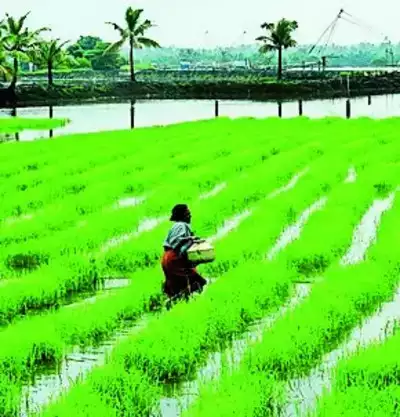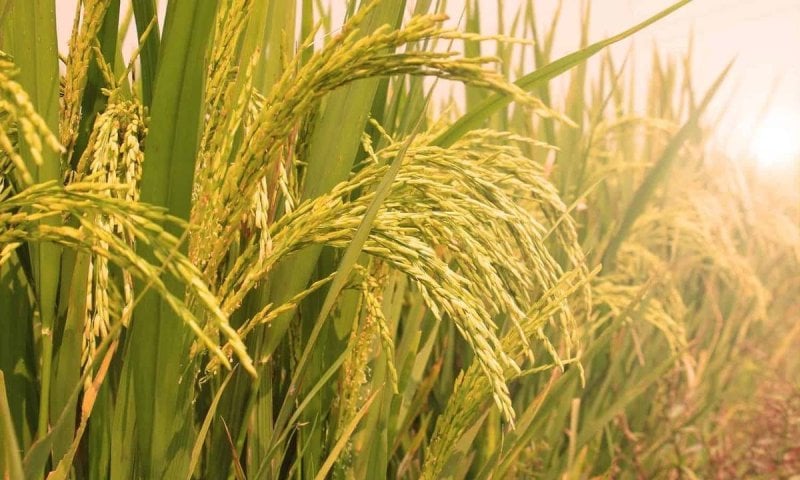Tags
Bacteria reduce salt stress in rice: Study

Kochi: Pokkali farmers battling against salinity increase due to sea inundation now have a ray of hope as researchers at Sanatana Dharma (SD) College in Alappuzha have identified a new bacteria from the field that can promote plant growth in the event of higher salinity in the soil. There was also an increase in the yield.
The study isolated a gene from Pseudomonas species using a newly-designed primer and tested its effect on the plant growth parameters under saline stress and normal conditions. The plants yielded 252 kg/hectare more than untreated plants under controlled conditions.
“The field trial experiments were carried out at Pandarakalam, near Chempumpuram in Kuttanad. The rice variety included was Uma, which has a maturity of 120 days and the organism used was ‘PK7’. The rice seeds were mixed with bacteria solution in the pre-sowing stage,” said T S Reshma who completed the research as part of her doctoral work.
The seeds were surface sterilized and soaked in tap water for 24 hours. Then they were coated with bacterial suspension. After coating, seeds were mulched with leaves and a polythene cover to ensure the optimum temperature and humidity needed for germination. Mulching was removed after 12 hours, and the germinated seeds were used for sowing. The field was ploughed and prepared for sowing. The control and treated plots were separated using ridges. Pre-germinated seeds were sown, and growth parameters were measured in different time intervals. After the 110th day, the yield was harvested and compared statistically.
Salinity affects the quality and quantity of the yield by Inducing osmotic stress. The study summarizes the successful implementation of plant growth-promoting rhizobacteria (PGPR) from saline pokkali rice field to an acidic clay soil of Kuttanad region. The team found that the bacteria associated from a salt-tolerant paddy variety ‘Pokkali” was applied for the growth improvement in salt susceptible variety Uma.
Rhizobacteria, especially salinity-tolerant PGPR have emerged in the last five decades as an organism of great importance that modulates the growth of plants by reducing different stress conditions, especially salt stress In the wake of saline intrusions in coastal places. Easy acclimatization and promising performance in field conditions ensure the added advantages of native PGPR.
https://timesofindia.indiatimes.com/city/kochi/bacteria-reduce-salt-stress-in-rice-study-indian-news-publication/articleshow/107807798.cmsPublished Date: February 19, 2024






